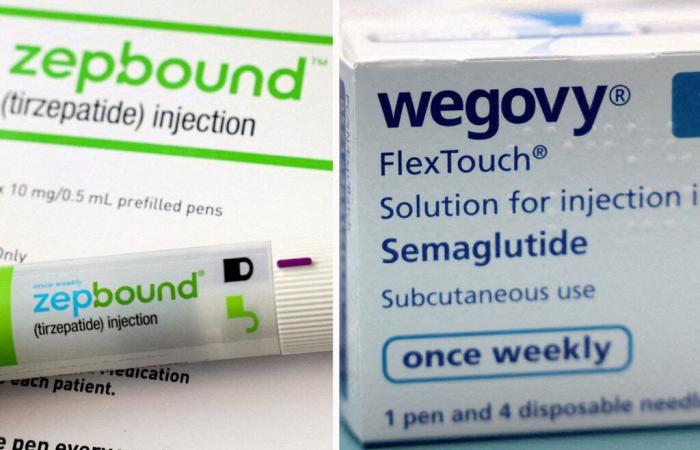
The World Health Organization plans to officially support for the first time the use of weight loss drugs to treat obesity in adults, according to a note consulted Thursday by Reuters, thus marking a change of approach in the fight against this global health problem.
The United Nations agency has also called for the implementation of strategies aimed at improving access to treatment in low and intermediate income countries.
According to the WHO, more than a billion people are currently suffering from obesity worldwide, and around 70 % of them live in low or intermediate income countries, according to the World Bank estimates.
Very popular obesity drugs, Wegovy developed by Novo Nordisk and Zepbounde by Eli Lilly, are known as the GLP-1 receptor agonists, which imitate the activity of a hormone that slows digestion and helps people feel satisfied longer. During clinical trials, participants lost between 15 % and 20 % of their body weight, according to the drug.
These drugs have been launched in the United States and other high-income countries such as Germany and Great Britain.
However, they can cost more than $ 1,000 a month, and studies suggest that patients may have to take them for life to maintain their weight.
WHO, Eli Lilly and Novo Nordisk were not immediately available to comment on this information.
The Conditional Recommendation of the WHO will be officially published in August, as part of new guidelines on the processing of obesity. The organization also works on separate directives for children and adolescents.
-In addition, WHO experts will also meet next week to decide whether it is advisable to include GLP-1 drugs in the agency’s essential drug list, both for the treatment of obesity and type 2 diabetes.
The list of essential WHO drugs is a catalog of drugs that should be available in all functional health systems. It can help make drugs more widely accessible in poor countries, as was the case in 2002 when HIV drugs were included, experts said.
In 2023, the experts decided not to add the drug obesity drugs, the WHO believing that additional evidence was necessary for their long -term clinical profit.
However, in the new note recommending their use for therapeutic purposes, the agency indicates that it supports their inclusion in the list this time.
However, WHO is also concerned about the cost of these drugs and asks for longer-term studies on their cost-effectiveness “in all contexts, including PRFIs” (low and intermediate income countries).
“The same mechanisms as those used in large -scale medication access programs may have to be adopted” to improve access, adds WHO, such as differentiated pricing or group purchases.
However, she also notes that the active principle of one of the new drugs, the Semaglutide, used in the Wegovy of Novo, will no longer be protected by a patent on certain markets next year.
Several companies then plan to market cheaper generic versions of these drugs. Liraglutide, the active ingredient of the previous generation of drugs, is already available in the form of a generic at a lower cost, with products approved in the United States and Europe, adds the note. (Report by Jennifer Rigby; edited by Josephine Mason and Susan Fenton)







